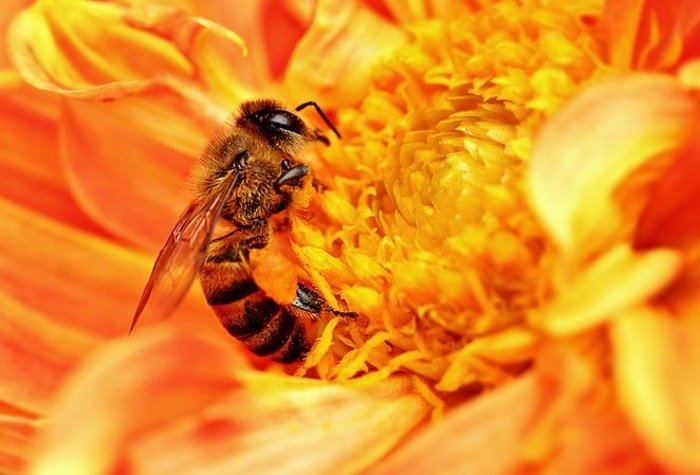Credit: Sajjad Fazel, Wikipedia, Creative Commons
DUNDEE, Scotland, March 27 (UPI) -- Some pesticides may be damaging the brains of bees, inhibiting the ability to learn and remember floral smells in their search for food, British scientists say.
Two common types of pesticides known as neonicotinoids and coumaphos are interfering with the insect's ability to remember and can even lower brain activity, especially when the two pesticides were used in combination, they said.
The findings come as honeybees around the world face threats from a host of diseases, losses of habitat and the mysterious Colony Collapse Disorder, all of which have cased numbers to plummet.
Neonicotinoids are used to control pests on food crops, while coumaphos are a group of organophosphate chemicals used to kill the Varroa mite, a parasite that attacks the honeybees.
Researchers at the University of Dundee in Scotland found that if the pesticides were applied directly to the brains of the pollinators, they caused a loss of brain activity.
"We found neonicotinoids cause an immediate hyper-activation -- so an epileptic type activity -- this was proceeded by neuronal inactivation, where the brain goes quiet and cannot communicate any more," researcher Christopher Connolly told the BBC. "The same effects occur when we used organophosphates."
Other researchers at Newcastle University found similar results.
"It would imply that the bees are able to forage less effectively, they are less able to find and learn and remember and then communicate to their hive mates what the good sources of pollen and nectar are," Newcastle scientist Sally Williamson said.















